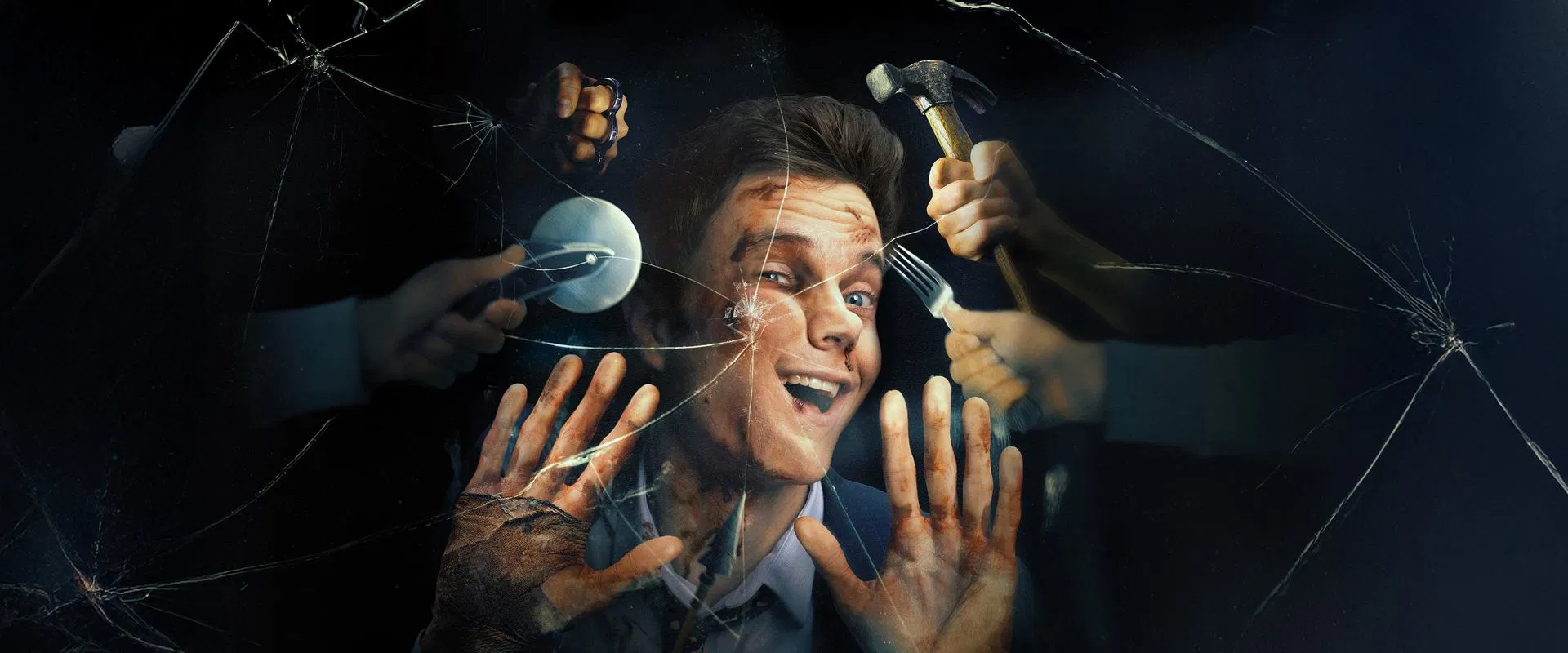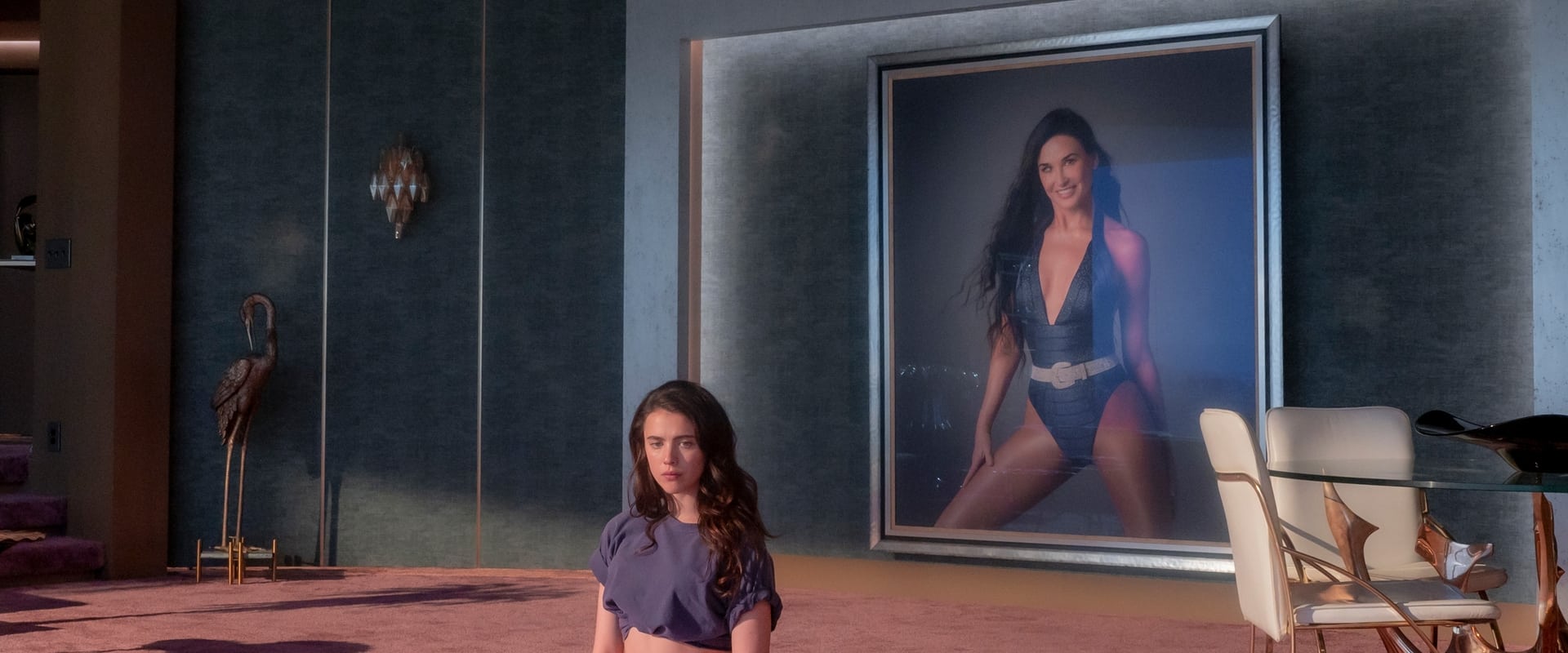There’s a delicious, fizzy pleasure to an action comedy that knows it’s a cocktail—equal parts sweet, sour, and shamelessly silly. “Novocaine,” directed by Dan Berk and Robert Olsen, arrives in our cinematic bloodstream like a jolt of—well, you know—something that deadens all but our delight. This is the rare studio product in which the soundtrack isn’t just wallpaper but a running vein, from the beautifully melancholic “Everybody Hurts” (R.E.M., that old-wound anthem for generation after generation of walking wounded) to the glitzy throb of “I Believe in a Thing Called Love.” It’s musical nostalgia used as time machine and emotional shortcut—and it works, sometimes earning more feeling than the plot does.
But plots, for these movies, are really just pretexts, excuses for mayhem and mash notes to the audience. The confection here: Nathan Caine (a game, confused, and curiously winning Jack Quaid) is a bank teller with a rare condition—he can’t feel pain. That’s a premise that ought to be milked for every drop of physical and emotional slapstick, and in “Novocaine” that’s exactly what happens—pain as both pratfall and metaphor. The whole thing opens with a melancholic pop song, a wry masterstroke that both winks at and earns the audience’s empathy. You can almost hear the audience settling in: “Okay, smart guy movie—show us what you’ve got.”
Jack Quaid, with his gangly, genial presence—a man forever apologizing for existing but refusing to disappear—plays Nathan not as a superhero but as a guy you’d forget at a dinner party, except for the part where he can take a punch like nobody since Buster Keaton. When his work crush, Sherry (Amber Midthunder, with a splendid, eye-rolling, dry warmth), is spirited away by robbers, Nathan trips into the sort of escalating ridiculousness that only modern action comedies dare to risk. There’s a whiff of “Nobody” and a shot of “Crank,” but “Novocaine” turns the agony-proof everyman on its head—half gag, half elegy. Ray Nicholson, menacing as Simon (the name says it all—could a movie villain ever be Dave?), and Jacob Batalon’s off-kilter Roscoe crank up the comic pressure, each performance adding a twist of lemon to the story’s already tart cocktail.
You won’t find story innovations here—the structure is more IKEA than Eames—but what keeps you leaning forward is the fizzy absurdity, that high-wire energy between giggle and grimace. The physics of Nathan’s painlessness are never realistic (don’t try this at home, kids!), but then, what good comedy ever aimed for realism? The best gags are grotesque, seat-squirming reminders that what we can’t feel still leaves a bruise.
The directors understand the sneaky poetry of slapstick: Nathan’s impotence is literal, yet the movie plays his inability to feel as a metaphor for the other numbnesses that afflict modern living. It’s only through the bracing, bloody-minded absurdity of his quest—rescuing Sherry, finding meaning in violence—that he, and we, remember what it is to care, to yearn, to get hurt.
That may sound serious, but the execution is blissfully unserious. Cinematographer and designers give San Diego the garish, untrustworthy glow of a city with too many funhouses—every ordinary setting turning just that bit uncanny when you stage a bank robbery next to a surf shop. The action is edited with a briskness that is nearly impatient; the film almost dares you to keep up. That’s all to the good—a movie like this doesn’t work unless it’s almost running from its own punchlines.
None of this would matter if the actors didn’t have chemistry to burn. Quaid and Midthunder bounce off each other in a way that’s both exasperating and sweet, like the screwball comedies used to manufacture before everyone got too self-conscious. There are moments—the prolonged climactic standoff included—where the plot logic creaks, but who’s keeping score?
“Novocaine” isn’t a revolution, and—God help us—it isn’t trying to be. It’s a genre-bender in the best sense: unpretentious, high on its own supply of cleverness and quirk. The violence is cartoony, the romance is unapologetically Hollywood, and the laughs sneak up on you even as you roll your eyes at the more mechanical twists. Sometimes, in a movie like this, you need to let logic fall away like an anesthetized limb—and just enjoy the delirium.
As for the music? Here’s a film that remembers that a killer soundtrack can do what expensive writing can’t: make us believe, even when we know we shouldn’t.
“Novocaine” leaves you grinning, a little sore (in all the right ways), and oddly grateful for all the messy, lovable absurdity of pain and pleasure. It reminds you that, for all the times we wish we could numb ourselves to the world, there’s no comedy—and no romance—without a little raw nerve left exposed.
A good time at the movies, for anyone who’s ever been in love, or at least, ever taken a punch and lived to laugh about it.


